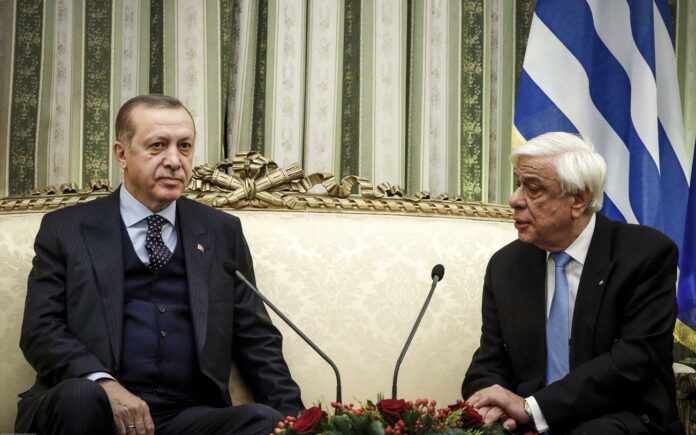Turkish President Recep Tayyip Erdogan wasted no time on Thursday in laying out a ground-breaking agenda for talks with the Greek government, citing a need to revise a landmark international treaty that more-or-less normalized relations between the two neighboring states as far back as 1923.
The powerful Turkish head of state made the reference to the Lausanne Treaty only hours after landing in Athens to begin a two-day official visit, and in response to opening statements by Greek President Prokopis Pavlopoulos, whose role under Greece’s constitution is completely ceremonial.
“Within this period of 94 years (since 1923) our planet is being reshaped; many things between Turkey and Greece changed during this period. We said that the Lausanne Treaty describes the Muslim minority in (northeast) Greece, but at the same time at the European Court of Human Rights there is a reference to the word Turkish. We must evaluate the living conditions of the people there (in the Thrace province). Can we answer the question if they (Muslim minority members) can exercise their religion based on the Lausanne (Treaty) provisions? In Turkey the (Orthodox Christian) Patriarch is not appointed,” Erdogan said in statements broadcast live.
He was referring to the fact that the Greek state, similar to the Turkish state, appoints the muftis, a quasi-judicial Muslim official that presides over family and inheritance issues. Conversely, although not appointed, Turkish law mandates that only a Turkish citizen can be elected as the Orthodox Patriarch, whereas a seminary (Halki) where past most Orthodox clergy were educated in the neighboring country remains closed since 1971.
“In western Thrace (northeast Greece), imams cannot elect their chief mufti, therefore the Lausanne Treaty is not being applied,” Erdogan first noted.














